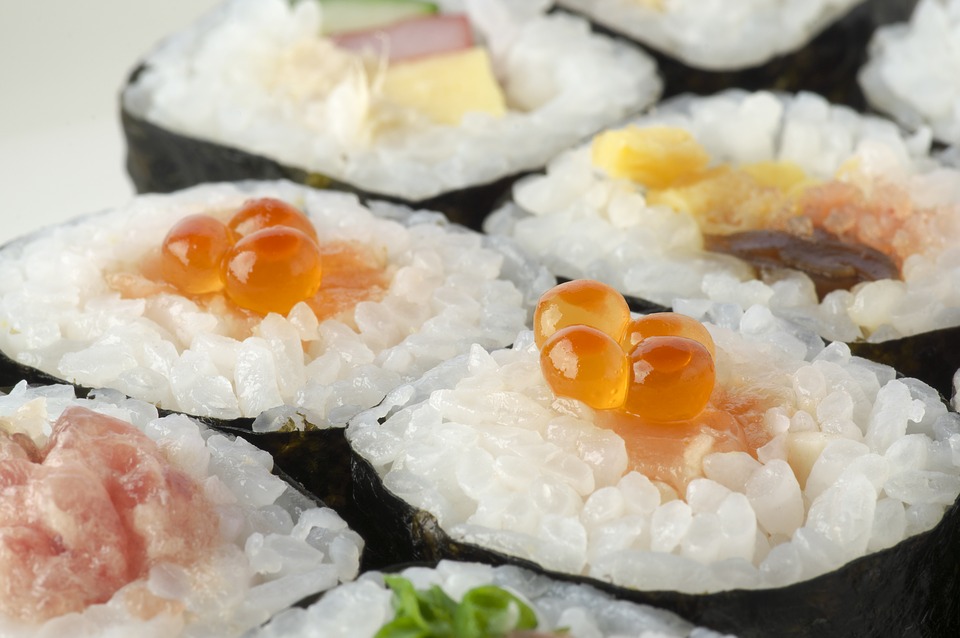
Brandon Turbeville and Heather Callaghan
Natural Blaze
May 22, 2017
Amino acids are the components of protein and proteins are the building blocks of life. And if you’ve got all your amino acids – you’ve got protein!
Do you eat fish, other animal products, eggs or sea plants such as algae? If not, then you may not be making enough taurine. That’s right. Your body makes taurine from two other amino acids called methionine and cysteine, provided it has the enzyme for it. Don’t worry – there are more food sources for taurine than sushi! More on food sources (including vegan) below.
Taurine is a non-protein amino acid that is sulfur-bearing and crucial for the metabolism of fats. It is necessary for building skeletal muscles, the central nervous system, retinas, and for cardiovascular function. Actually, it is an acid containing an amino group, rather than an amino acid in the usual meaning of the term.
Taurine is so important that the lack of this amino acid in commercial cat food led to the deaths of many animals before the deficiency was discovered. Many cat food cans now list the percentage of taurine. Even though humans and cats are so biologically different – the human need for taurine cannot be stressed enough.
Below is a list of all the research-backed beneficial effects of taurine.* Try to get taurine from a variety of foods listed below. Talk to your preferred healthcare practitioner before upping your taurine intake with a supplement.
22 Amazing Taurine Benefits
1. Fatty-liver disease – effective at treating fatty-liver disease in children with simple obesity. Helpful adjuvant therapy regardless of whether or now they gain or lose weight.
2. Lowers blood pressure – improves cases of pre-hypertension.
3. Protects against fluoride induced neurotoxicity – taurine was found to be neuroprotective against sodium fluoride-induced biochemical and behaviorial effects in rats.
4. Ameliorate toxicant-induced memory loss – taurine helped rats with memory impairment (amnesia) induced by alcohol, pentobarbital, cycloheximide, and sodium nitrite without compromising the behavioral aspects of the animals tested.
5. May improve certain complications to diabetes – particularly neuropathy.
6. Reduces cardiovascular risks – middle aged males and females who excreted greater 24-hour urinary taurine and magnesium had lower cardiovascular risks in one study.
7. Helps reset circadian rhythm that was damaged by high-fat diet – Taurine has been found helpful in obesity, diabetes and in this rat-study, helpful in ameliorating a damaged circadian rhythm.
8. Could help hypothyroidism – a test of experimental hypothyroidism showed increased serum paraoxonase and arylesterase activities after high-dose taurine supplementation.
9. Could prevent thyroid disruption as a result from pesticides and lead – an rat-study showed taurine to help prevent thyroid disruption from exposure to chlorpyrifos (organophosphate) and lead.
10. Can help reduce left-ventrical size – combined with coenzyme Q10 and carnitine, taurine helped replete essential cardiac myocyte nutrients and reduced left-ventrical size.
11. Cure liver diseases such as cirrhosis, fibrosis and viral hepatitis – with the help from silymarin (milk thistle). Taurine was found to be a free-radical scavenger and anti-inflammatory.
12. Helps relieve the abnormal accumulation of fluid known as ascites – by inducing diuresis and natriuresis.
13. Can improve liver injury in patients with chronic hepatitis.
14. A supplementary therapy for cystic fibrosis. Decreases fecal fatty acid and sterol excretion.
15. Alleviates adverse effects on eyes from computer use – reduces visual fatigue.
16. Can help carbohydrate metabolism and skeletal muscle – particularly during post workout phase.
17. Potentially counteract age-related muscle loss – researchers highlight the potential use of taurine as a therapeutic molecule for the amelioration of skeletal muscle function and performance severely compromised during aging.
18. Protects against gastric damage done by drugs for bone loss.
19. Protects against degenerative changes in urinary/bladder function – induced by various kinds of stress/injury.
20. Potentially helpful in treating breast cancer – in one study, it reduced breast cancer rates from 80% down to 40% in rats.
21. Can improve brain development – taurine has important functions in brain development.
22. Has no toxic effect on humans – the previous study also found it is non-toxic to humans.
Certain health conditions can allegedly reduce taurine levels such as heavy metal toxicity, candida, infection, vitamin B6 and zinc deficiency and overconsumption of MSG. If you are concerned about getting enough – please get a complete blood work up and add a variety of foods to your plate.
Food sources of Taurine
Fish
Lamb
Eggs
Meat
Dairy
Note – a complete, nutrient-dense plant based diet provides the tools for making this amino.
Vegan food sources for making taurine
Note – this list contains amino acids that help the liver make it.
Sea weed and red marine algae
Brewer’s yeast
Soy (only choose whole food, organic and fermented foods – not isolates)
Hemp seed
Quinoa
Buckwheat
Amaranth
Gentle World recommends (emphasis added):
Adults can produce taurine by a combination of cysteine with the help of pyridoxine-Vitamin B6, methionine and vitamin C. (Cysteine is found in red peppers, garlic, onions, broccoli, Brussels sprouts, oats, granola and wheat germs. B6 is in whole grain products, vegetables, and nuts. High levels of methionine can be found in Brazil nuts, sunflower seeds and butter, sesame seeds, oats and a huge long list of vegan foods.)
However, some scientific research does advise vegans to supplement taurine.
Check out the other articles in our series:
10 Amazing Health Benefits Of Garlic
40 Amazing Benefits Of Milk Thistle
10 Amazing Health Benefits Of Papaya
40 Amazing Health Benefits Of Lavender Essential Oil
11 Amazing Health Benefits Of Bergamot Essential Oil
10 Amazing Health Benefits Of Onions
10 Amazing Health Benefits Of Tomatoes
10 Amazing Health Benefits Of Cinnamon
*DISCLAIMER: This article is not intended to provide medical advice, diagnosis or treatment.
Natural Blaze / CC SA-4.0 / eBook
Get a nifty FREE eBook – Like at Facebook, Twitter and Instagram.

Brandon Turbeville – article archive here – is an author out of Florence, South Carolina. He is the author of six books, Codex Alimentarius — The End of Health Freedom, 7 Real Conspiracies,Five Sense Solutions and Dispatches From a Dissident, volume 1 and volume 2, The Road to Damascus: The Anglo-American Assault on Syria,and The Difference it Makes: 36 Reasons Why Hillary Clinton Should Never Be President. Turbeville has published over 1,000 articles dealing on a wide variety of subjects including health, economics, government corruption, and civil liberties. Brandon Turbeville’s podcast Truth on The Tracks can be found every Monday night 9 pm EST atUCYTV. He is available for radio and TV interviews. Please contact activistpost (at) gmail.com.

Heather Callaghan is an independent researcher, writer, speaker and food freedom activist.
She is the Editor and co-founder of NaturalBlaze as well as a certified Self-Referencing IITM Practitioner.
No comments:
Post a Comment
Note: Only a member of this blog may post a comment.